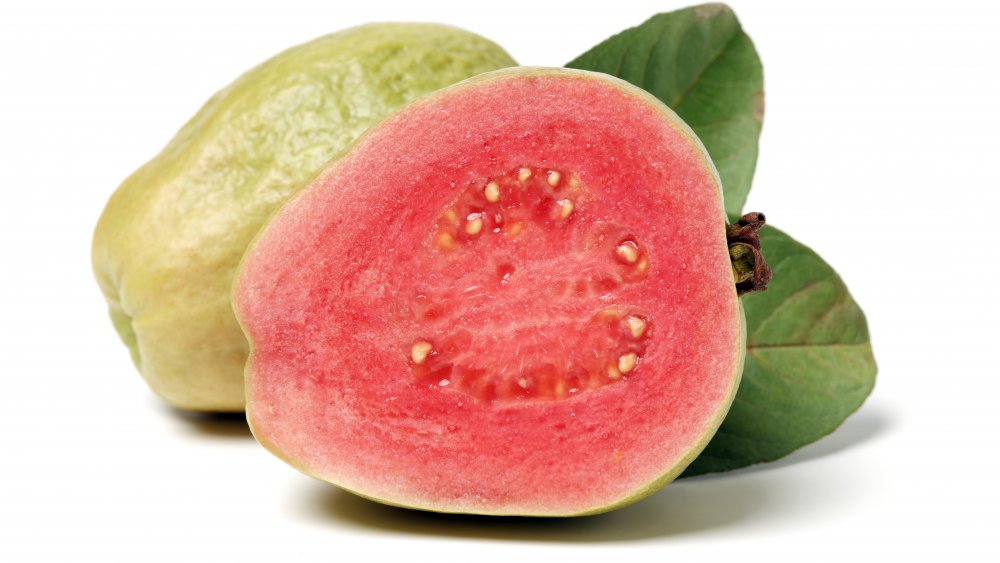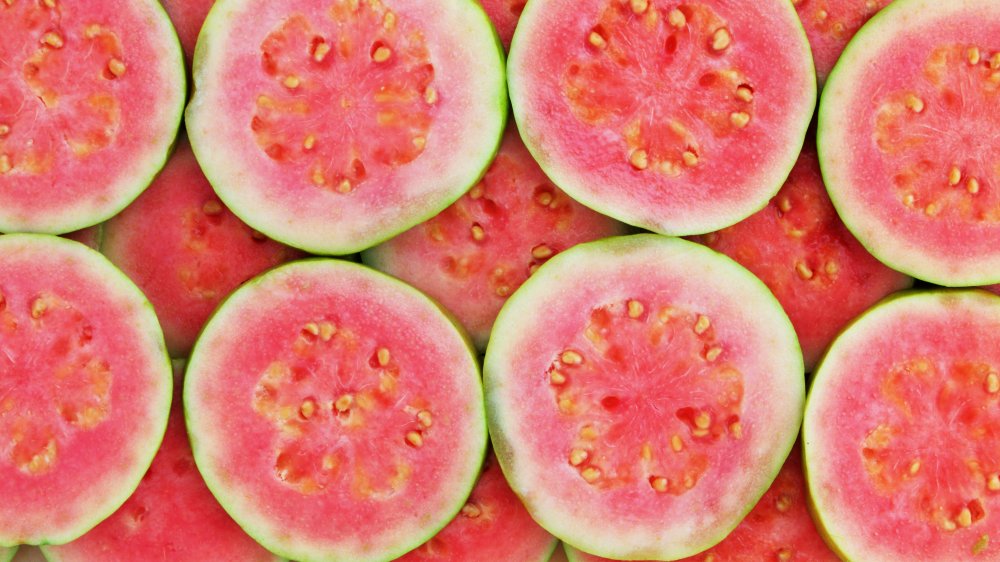Here's Why You Shouldn't Throw Out Guava Seeds
Guava is that tropical fruit you'll probably see in the produce section that's often hailed as a superfood, but that you feel a little sheepish purchasing. Questions like: How do you eat it? Will it taste good? may pop into your head, and while these concerns are completely valid when trying a new fruit, you will be pleasantly surprised by how simple and healthy guava is. Per Healthline, the guava contains 12 percent of your daily recommended intake of fiber, and just 37 calories per fruit. And if you are looking to boost your immune system to take on cold and flu season, the guava will provide you with double the daily recommended amount of your vitamin C, leaving other providers in the dust.
But it is really the ease of this fruit that has us fawning over it. In fact, Epicurious points out that this fruit that tastes like a blend of a strawberry and a pear can be eaten whole. Yep, you can eat every last bit of this fruit, including the seeds — so definitely don't throw them out. Here's why.
Guava seeds are beneficial in their own ways
According to NDTV Food, the small, round, hard seeds of a guava should be eaten with the fruit because of their several health benefits. Those include aiding in lowering blood pressure and alleviating constipation. Guava seeds are rich in antioxidants, fiber, and potassium. In fact, the guava has more potassium than bananas, which is essential for keeping your blood pressure healthy. Additionally, the fibrous nature of the guava makes it the perfect, natural aid when you are constipated. Whether you choose to chew these seeds whole or grind them up in a smoothie, you can reap the many benefits this fruit offers.
However, before you add guava seeds to your diet, a word of warning. The Health Benefits Times, suggests that eating guava seeds may negatively affect your appendix and cause inflammation, but according to the U.S. National Library of Medicine National Institutes of Health, the risk is minimal. Still, they do caution that not eating seeds from any fruits removes all doubt. That said, before you make changes to your diet, you should always consult your physician.

